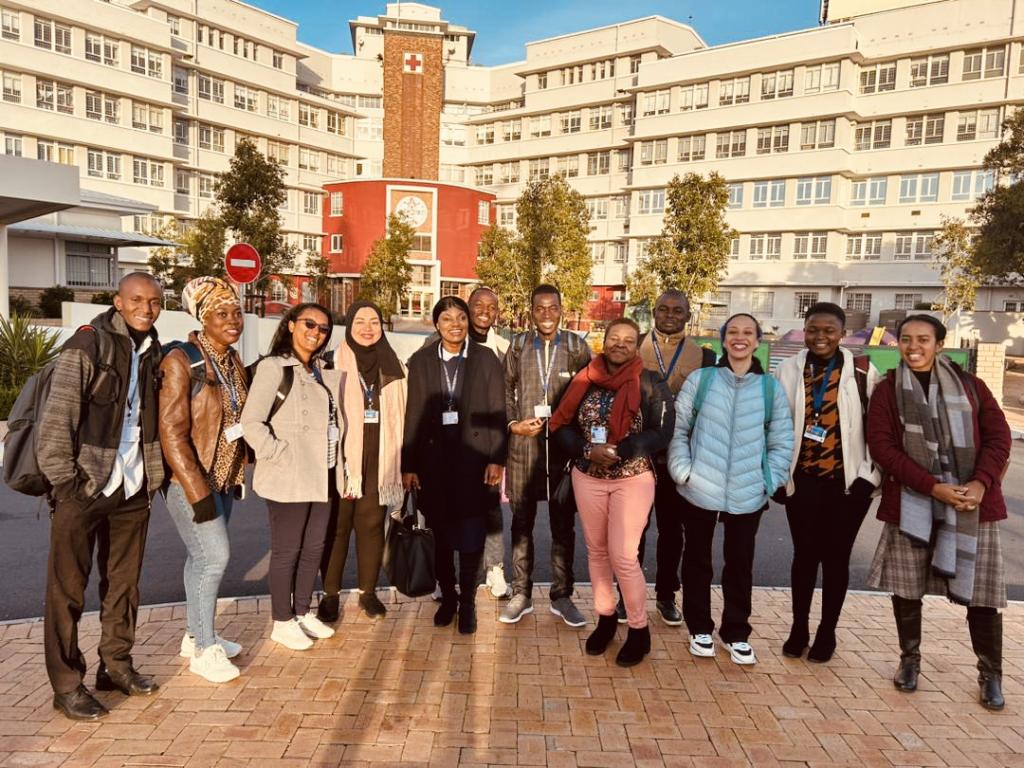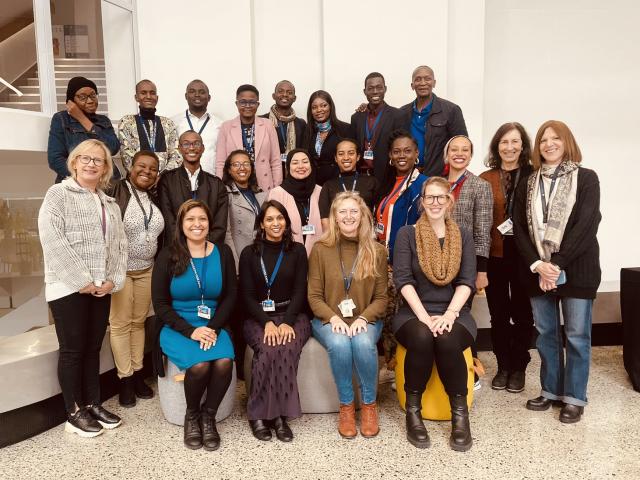Bridging the Neurology Healthcare Gap in Africa: The Imperative of Capacity Development

Introduction
Africa, a continent characterized by its immense diversity and a population exceeding 1.3 billion, faces a significant healthcare challenge, particularly within the field of neurology. Of profound concern is the striking disparity in the number of neurologists between African nations and their European counterparts. In Africa, the presence of trained neurologists is far below the global average, with a ratio of 0.03 neurologists per 100,000 people, in stark contrast to Europe's 8.45 neurologists per 100,000 individuals (Klein et al., 2023; Wilmshurst et al.,2023).
The Burden of Neurological Diseases
This shortage of neurologists in Africa is further exacerbated by the high prevalence of neurological diseases on the continent. It is estimated to be higher than the Middle East and predicted to continue to rise (Anon, 2006). Furthermore, neurologic disorders are the second leading cause of death worldwide (Feigin et al, 2020), underscoring the critical need for specialized neurology care in Africa.
Challenges in Healthcare Infrastructure
In addition to the paucity of neurologists, Africa grapples with other healthcare challenges, including the availability of qualified medical staff, inadequate research support, and a dearth of essential neurologic services. Neurology societies exist in less than 50% of sub-Saharan African countries, and the shortage of critical sub-specialized services such as Neuroradiology, Stroke units, neurologic rehabilitation, Electromyography and Electroencephalography is apparent (Kissani et al., 2002).
The Role of Capacity Development
Addressing these multifaceted issues necessitates a dedicated focus on capacity development within the field of neurology in Africa. One of the most effective approaches to ameliorate this situation is through hands-on training and education. This not only equips healthcare professionals with the knowledge and skills required for the diagnosis and treatment of neurological disorders but also fosters a sense of camaraderie and inter-country collaboration.

A Model for Capacity Development: The IBRO-ILAE School
An illustrative example of capacity development efforts in Africa can be found in the International Brain Research Organisation (IBRO) and the International League Against Epilepsy's (ILAE) school held earlier this year. The IBRO-ILAE school focused on integrating and understanding the Intersectoral Global Action Plan (IGAP) in relation to epilepsy care in Africa. Hosted at the NI and Red Cross Children's Hospital in Cape Town, the event brought together thirteen delegates from eight different African countries.
Epilepsy, a significant concern in Africa, particularly in sub-Saharan Africa, demands specialized care and education. Estimates indicate that the prevalence of epilepsy is 2 to 3 times higher in sub-Saharan Africa than in high-income countries (Klein et al., 2023).
During the school, participants engaged in lectures and workshops that included instruction in essential skills such as reading an EEG and conducting PET scans. They also collaborated on group projects aligned with the objectives of the IGAP, applying their knowledge to real-world contexts. Notably, several of these project ideas have the potential for submission to the ILAE for funding and implementation.
After the week-long program, attendees participated in the Society of Neuroscientists of Africa (SONA) conference in Johannesburg, enriched with enhanced skills and newfound friendships.
Success and Inter-Country Connections
The success of the IBRO-ILAE school in Cape Town serves as a beacon of hope for the field of neurology in Africa. It not only provided invaluable experience for the students but also established crucial inter-country connections. These connections serve as a foundation for African nations to build success together, share expertise, and collaboratively address the pressing neurological healthcare challenges on the continent.
In the words of Abbas Nasidi from Nigeria, "What I enjoyed most about the school was the environment of shared knowledge and diversity. It was an intellectual melting pot, where I not only learned about the neurobiology of epilepsy but also gained a deeper understanding of different cultures and perspectives."
As another delegate observed ‘What impressed me was the diversity of professions in neuroscience and how energetically devoted every African is to his/her profession’ - Selam Kifelew, Ethiopia.
Conclusion
In conclusion, the imperative of capacity development in the field of neurology in Africa cannot be overstated, given the acute shortage of neurologists and the substantial burden of neurological diseases. Hands-on training initiatives, exemplified by endeavours like the IBRO-ILAE school, offer a promising solution to bridge the gap in neurology care in Africa. By investing in education and collaborative efforts, we can empower African healthcare professionals to provide improved neurological care and ultimately enhance the well-being of millions on the continent. A collective vision of a future where every person achieves their full potential through brain health is attainable only through collaborative efforts and concerted action.

A full report of the school can be found here
References
Wilmshurst et al (2023) Access to Pediatric Neurology Training and Services Worldwide: A Survey by the International Child Neurology Association. Neurology, 101(18),798-808.
Klein et al (2023) Does the presence of a specialist doctor reduce the burden of disease in people with epilepsy in low-resource settings? A comparison of two epilepsy clinics in rural Tanzania. Epilepsy & Behavior, 139.
Anon (2006) Neurology in sub-Saharan Africa—WHO cares? The Lancet Neurology, 5(8), 637.
Feigin et al (2020) The global burden of neurological disorders: translating evidence into policy. The Lancet Neurology, 19(3), 255-265.
Kissani et al (2002) Why does Africa have the lowest number of Neurologists and how to cover the Gap? Journal of Neurological Sciences, 434.
